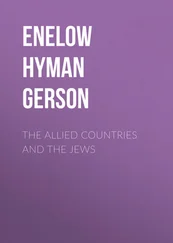Well, within a very few years the younger members of that very man's family came out in Parliamentary scandal after scandal, appearing all in sequence one after the other—a sort of procession. They had been let alone right enough! But they had not let us alone. I ask myself, sometimes, How would it sound if some years hence any one of those descendants—having by that time been given his peerage (for they are rich men and all of them in professional politics)—should return to that cry of his ancestor and ask to be "let alone"? There would be no response then in the breasts of the contemporaries who might hear him. Manners will so much have changed in this regard that he would be interrupted. But I do not think that my hypothetical descendant of that rich old Jew is likely to make any such speech. I think that when the time comes for making it, the whole idea of "letting alone" will be quite dead.
I have quoted this old man's speech with no invidious intention but only as an actual example of the way in which the "letting alone" of this great question breaks down. I am as familiar as any Jewish reader of mine with names that have dignified public life in the past, Jewish names, Jewish peers: and I recall in particular the honoured name of Lord Herschell to the friendship between whose nearest and my own I preserve a grateful and sacred memory.
* * * * *
But to return to the failure of the sentimental argument.
The sentimental argument fails because it involves contradictions—that is, incompatibility of fact.
Even if one had not this strictly rational principle to guide one, there is the whole of history to guide one. It is true that the pretence of common citizenship has worked now for a shorter, now for a longer, period, but never indefinitely. You always come at last to a smash. The Jew is welcomed in mediaeval Poland; he comes in vast numbers; all goes well. Then the inevitable happens and the Jew and the Pole stand apart as enemies, each accusing the other of injustice, the one crying out that he is persecuted, the other that the State is in danger by alien activity within. Spain alternatively pursued this policy, and its opposite; the whole history of Spain—the original seat of Jewish influence in Europe after the general exile—is a history of alternating attempts at the sentimental solution and a savage reaction against it: the reaction of the man, who, fighting for his life, strikes out violently in terror of death. That is the history not only of Spain but of every other country at one time or another.
Indeed, we have before our very eyes to-day the beginning of exactly such a reaction in the West of Europe and the United States of America, and it is the presence of that reaction which has caused this book to be written. The attempt at a Liberal solution has already failed in our hands; if it had not failed there would be no more to be said, or, at any rate, we could postpone the discussion until the actual difficulty began. But we have only to look around us to see that, after these few years, this one lifetime, during which the experiment has flourished in the highest part of civilization, it is already breaking down. Everywhere the old questions are being asked, everywhere the old complaints are being raised, everywhere the old perils are reappearing. We must seek some solution, for if we fail to find it we know from the past what tragedies are in store for us both. There is a problem, a most direct and urgent problem. Once it is recognized, a solution of it is necessarily demanded.
But it is not enough to show that the mere denial of the existence of that problem—the old nineteenth century Liberal policy—was false and bound to break down. It is just as necessary, if we appreciate how practical and immediate the problem is, to state it and illustrate it from contemporary events. It is not enough to show that the attempted Liberal policy has failed. One must also, before trying to discover a solution, analyse the nature of the problem as it presents itself at the moment, and that is what I propose to do in the next chapter.
CHAPTER III
THE PRESENT PHASE OF THE PROBLEM
Table of Contents
I said in my last that the old solution of ignoring or denying the Jewish problem was bound to break down and had broken down, and this was tantamount to saying that the problem persists. But I said one must go farther and state the full nature of that problem as it stands at this moment before one could attempt a practical solution.
It is not enough to say that a person who imagines himself immortal and immune from disease is, as a fact, dangerously ill, and that the break-down of his health has disproved his theory. One must go on to find out exactly what is the matter with him, and, if possible, what the cure for the trouble may be.
The Jewish problem in its larger sense I have defined in the first chapter of this book, and that as I think every one defines it, including all the many Jews who have discussed the matter. It is the presence within one political organism of another political organism at friction with it: the strains set up by such an unnatural state of affairs; the risk of disaster to the lesser body and of hurt to both if it remain unremedied. The true solution therefore is only to be discovered in some policy which will permanently relieve the strain and re-establish normal relations. The end of such a solution should be the functioning, as far as possible, of both parties, at their ease and without disturbance one to the other.
But this general statement of the problem—that it is the presence to each party of an alien body and the consequent irritation and friction on each—is not enough. We must pursue it more closely and develop it in greater detail, describing how the friction and the irritation are increasing: insisting that they have even become a menace. Then only can we set out to discover as far as possible by analysis what exact character the disease bears and why it is of this character. Only after all this can we explore a remedy.
When we look round the modern world, say the last twenty years, we discover, in widely separate places, and among very different interests, and inhabiting the most diverse characters, the presence of what is for many a new political feeling: it runs from irritation to exasperation, from grumbling to invective; it is everywhere directed against the Jews. One activity after another, in which the Jews are variously in the right or in the wrong, or indifferent, has aroused hostility in varying degrees—but increasing—and though the danger-spots are still, as I have said, dissociated in the main, yet they are beginning to coalesce and to form large areas inimical to Israel.
It is objected of the Jew in finance, in industry, in commerce—where he is ubiquitous and powerful out of all proportion to his numbers—that he seeks, and has already almost reached, dominion. It is objected that he acts everywhere against the interests of his hosts; that these are being interfered with, guided, run against their will; that a power is present which acts either with indifference to what we love or in active opposition to what we love. Notably is it said to be indifferent to, or in active opposition against, our national feelings, our religious traditions, and the general culture and morals of Christendom which we have inherited and desire to preserve: that power is Israel.
These feelings grew as one example after another of the Jewish strength, the Jewish cohesion, arrived to feed them. How violent they were to become might be seen by taking as a special example their extreme form, called "Anti-Semitism." When we come, later in this book, to examine that modern phenomenon, we shall find it to be not only a proof of the insistence and gravity of the problem we are trying to solve, but also some explanation of its nature.
Читать дальше












